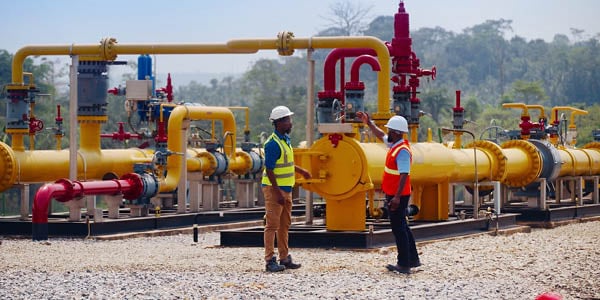
Powering Africa's industrial growth
Energy infrastructure stands as the cornerstone of Africa's industrial transformation, with Tanzania emerging as a compelling example of how strategic energy investments in Africa can unlock manufacturing potential and drive regional economic growth.
As African nations pursue ambitious industrialisation goals, the demand for reliable, affordable, and increasingly sustainable power has never been more critical. Tanzania's experience demonstrates how natural gas infrastructure combined with renewable energy development creates a pathway for industrial competitiveness while supporting the continent's broader energy transition objectives.
"Energy infrastructure is often referred to as the first domino in the chain of industrialisation because it sets everything else in motion," says Elias Ngunangwa, Head of Client Coverage, Corporate and Investment Banking at Stanbic Bank Tanzania. "Once that domino falls into place, it unlocks progress in manufacturing, job creation, and inclusive growth."
Leveraging natural resources for industrial growth
Tanzania's energy strategy is structured as a pragmatic approach to energy transition financing. While the nation's current energy mix relies heavily on hydropower, which contributes 31% to the energy mix, the government recognises the need for diversification to ensure reliability during drought periods. This has led to increased investment in renewable energy projects, particularly solar, alongside the strategic development of the country's significant natural gas infrastructure.
The Songo Songo gas field represents a successful integration of energy and manufacturing sectors. A gas producer in southern Tanzania currently transports gas via pipeline to Dar es Salaam, supplying over 45 major industrial users. This infrastructure ensures stable domestic energy supply while reducing reliance on more carbon-intensive alternatives, supporting industries as the country - and continent - continue along the journey to cleaner energy sources
Regional collaboration and cross-border opportunities
Tanzania's energy ambitions extend beyond national borders, recognising cross-border energy infrastructure as a key enabler of regional industrialisation. As a member of the East African power pool, Tanzania is positioned to become a net power exporter, creating opportunities for regional energy trade that strengthen economic ties across East Africa.
This regional approach to energy development offers valuable lessons for other African markets. While our focus includes supporting similar transformations in regions like energy transition in West Africa, the fundamentals remain consistent: reliable power infrastructure catalyses industrial growth regardless of geography.
Innovative financing models driving progress
Standard Bank's role extends beyond traditional lending to offer tailored financial solutions specifically targeting energy infrastructure sectors. Through green financing instruments and public-private partnerships (PPPs), we're helping to mobilise the capital required for large-scale energy projects while ensuring sustainable development principles are embedded from the outset.
"We build relationships by understanding our clients, gathering insights, and translating those insights into value," explains Ngunangwa. This relationship-based approach is essential for structuring and executing complex energy transition financing transactions that balance immediate industrial needs with long-term sustainability goals.
The increasing adoption of alternative funding models, including green bonds and PPPs, demonstrates the financial sector's evolving role in Africa's energy transformation. These instruments are particularly relevant for projects involving dual fuel power plants in Africa, which offer flexibility in fuel sources while supporting the gradual transition to cleaner energy.
Building sustainable industrial ecosystems
Tanzania's approach to energy development emphasises not just infrastructure, but also human capital development. Through partnerships with engineering universities and graduate rotation programmes, the country is building the technical expertise needed to sustain its energy sector growth. This focus on skills development ensures that energy investments in Africa create lasting value beyond immediate infrastructure gains.
The integration of energy planning with industrial strategy has enabled Tanzania to attract energy-intensive industries ranging from cement and steel to glass and textiles. By ensuring reliable power supply through diversified sources, including natural gas and renewables, the country is creating conditions for sustained manufacturing growth.
A blueprint for African energy transformation
Tanzania's journey offers a replicable model for other African nations pursuing industrial transformation through strategic energy development. The combination of natural resource utilisation, regional collaboration, innovative financing, and skills development creates a comprehensive approach to energy sector advancement.
At Standard Bank, we recognise that Africa's energy transition requires pragmatic solutions that balance immediate development needs with long-term sustainability goals. Through strategic energy transition financing and deep local expertise, we're committed to supporting projects that drive industrial growth while advancing the continent's energy transition objectives.
The lessons from Tanzania's energy infrastructure development – start with existing resources, build incrementally, invest in local capacity, and leverage regional partnerships – provide a scalable blueprint for energy transformation across Africa. With the right combination of infrastructure investment, financial innovation, and strategic partnerships, Africa's industrial future is being powered today.
This article was originally published on CNBC.
